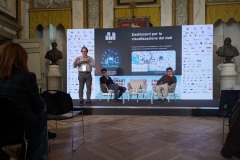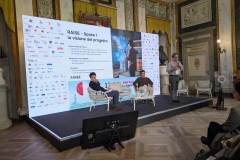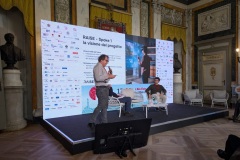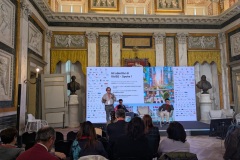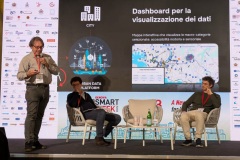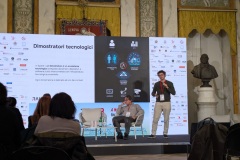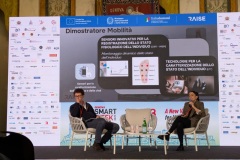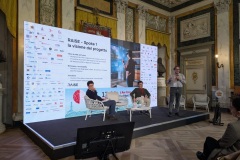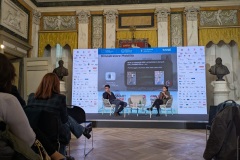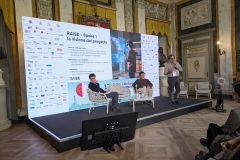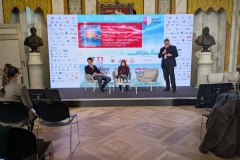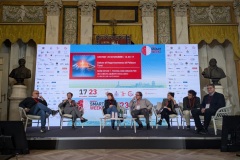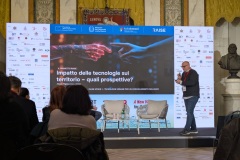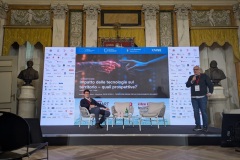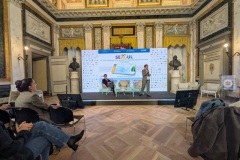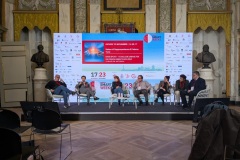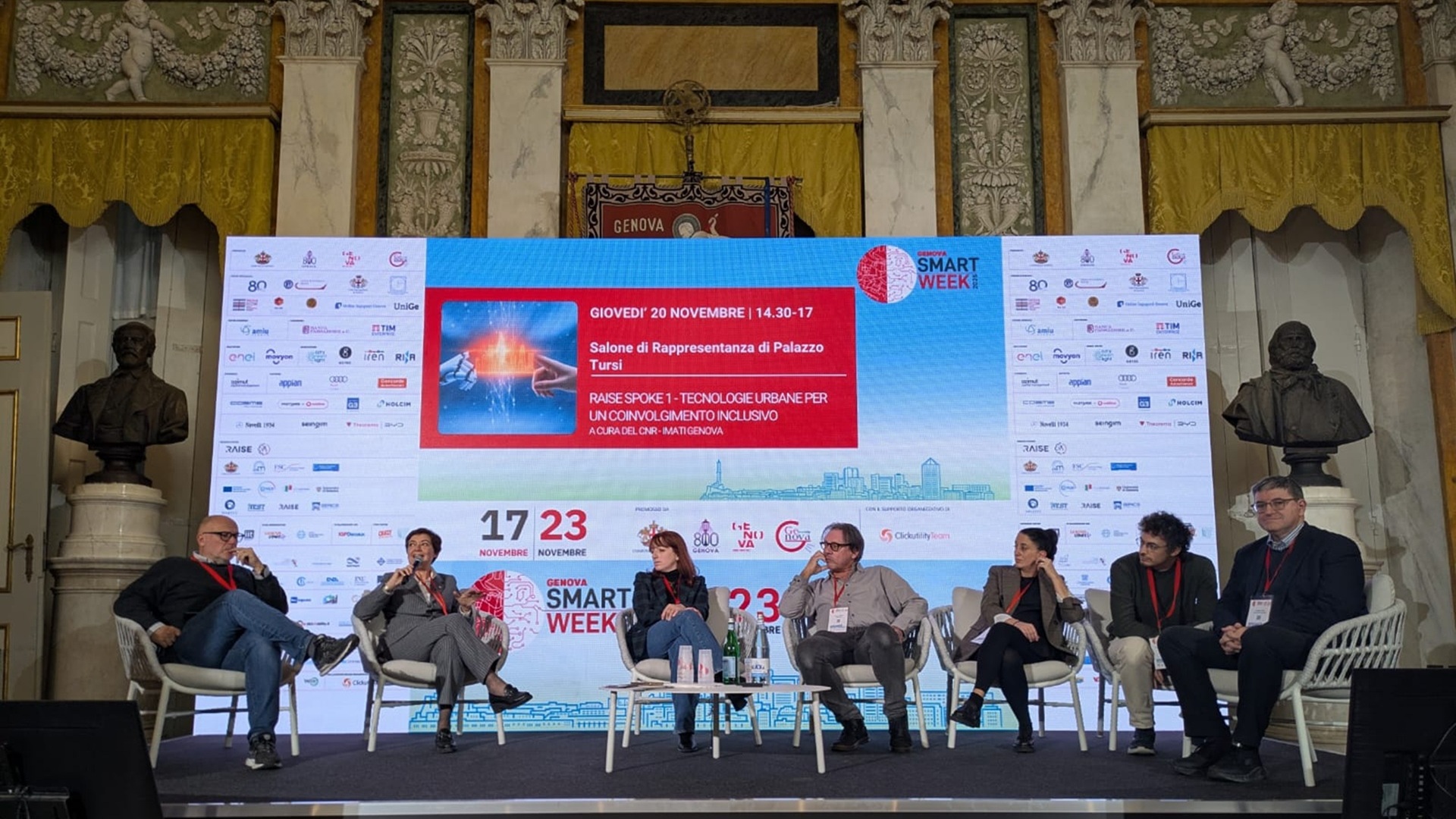
Spoke 1 of RAISE took part in the 2025 edition of Genova Smart Week, an event promoted by the Genova Smart City Association and the Municipality of Genoa, with technical support from Clickutility Team.
The initiative gathered experts, institutions and researchers for a national and international discussion on the evolution of smart and sustainable cities. The programme highlighted good practices, ideas and solutions designed to support an urban environment attentive to well-being and quality of life.
On Thursday 20 November, from 14:30 to 17:00, the Salone di Rappresentanza of Palazzo Tursi hosted the workshop “Urban Technologies for Inclusive Engagement”, organised by CNR – IMATI Genoa.
The meeting presented the activities of Spoke 1, which designs and develops technologies, devices and services that promote inclusive access to urban spaces. Spoke 1 proposed a Smart City vision centred on real needs, aiming to enhance everyday life and generate widespread well-being.
Moderator Roberto Malvezzi (CNR – IMATI) opened the session and introduced the speakers. During the workshop, Fabrizio Malfanti and Elia Moscoso-Thomson (CNR – IMATI) illustrated the results achieved in the development of urban technologies and the perspectives guiding their evolution. Their contribution described the principles behind the design of services that respond to the context of use and adapt to the dynamic conditions of urban life.
Alice De Luca (IIT) explored the role of the interactive technological components integrated into the RAISE demonstrators. She showed how these elements interact with the digital twins of individuals and the city, creating personalised experiences. She illustrated the solutions developed for the UrbanTech and SchoolTech demonstrators and explained their impact on mobility and learning in complex environments.
Gualtiero Volpe and Eleonora Ceccaldi (University of Genoa) presented the development and evaluation processes of the demonstrators, highlighting how the teams designed tools capable of integrating into real-life contexts. They shared the results of experiments conducted with citizens, students and educational communities, emphasising the value of a participatory and interdisciplinary approach.
Mauro Migliavacca (University of Genoa) reflected on the impact of these technologies on the territory and on the perspectives that may emerge in the coming years. His contribution underscored the importance of integrating digital innovation with social dynamics to build urban policies that foster inclusion and sustainable development.
Paola Renata Dameri (University of Genoa) concluded with the Seagul case study, an urban dashboard designed to support municipal decision-making. She illustrated how the dashboard collects and analyses data related to quality of life at the district and neighbourhood levels, highlighting differences and critical issues across micro-areas. This approach supports public policies aimed at more targeted and effective interventions centred on people.
The workshop closed with a set of shared reflections from the speakers, who summarised the experience and the perspectives that emerge from the work carried out in recent years.
Roberto Malvezzi described the meeting as a key milestone: “This edition of Smart Week offered an important moment to present the results of Spoke 1 to the city. We completed a three-year journey and shared our work with a community attentive to urban development. Smart Week has accompanied the evolution of the project since the first year, and today we presented a complete vision that opens a new phase dedicated to enhancing results and building future collaborations.”
Alice De Luca also retraced the path taken, focusing on the technologies developed for the RAISE demonstrators: “During Smart Week we presented the technologies created for the RAISE demonstrators. These solutions interact with the digital twins of individuals and the city, offering personalised experiences while navigating the urban environment. We showcased the results achieved in the fields of mobility and education.”
Finally, Paola Renata Dameri emphasised the importance of directing innovation toward people: “We illustrated how technologies and artificial intelligence can support local policies and guide decisions oriented toward citizens’ well-being. The urban dashboard we presented adopts a people-centred approach based on their living conditions. This change in perspective enables the development of a Smart City truly focused on community needs.”
The workshop offered a comprehensive overview of Spoke 1’s contribution to the evolution of future cities. The discussion demonstrated how robotics, artificial intelligence and digital systems already support the design of inclusive urban services. The initiative formed part of a broader programme that, in the 2025 edition, brought together institutions, schools, universities, enterprises and start-ups, fostering an exchange of ideas and in-depth reflection on key themes related to the digital and sustainable transition of cities.


